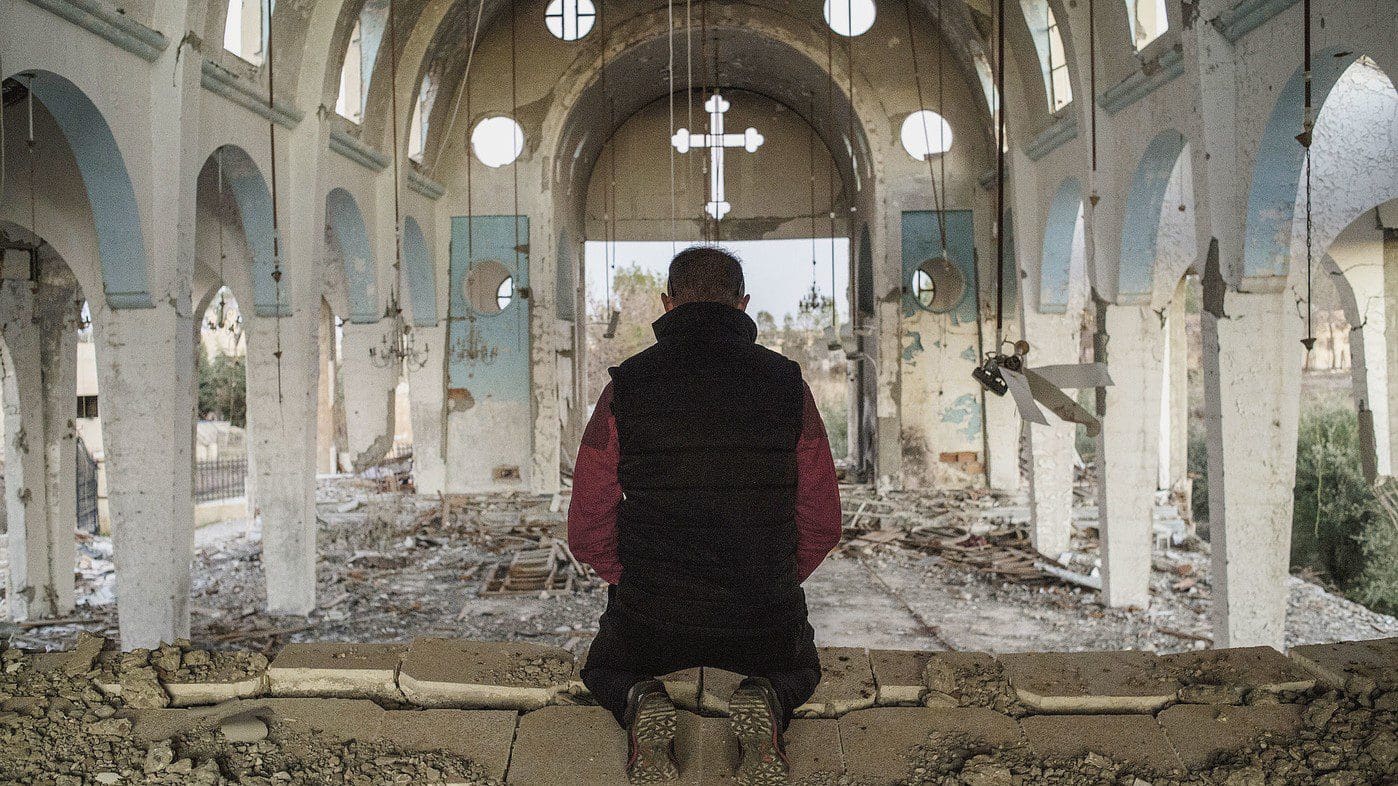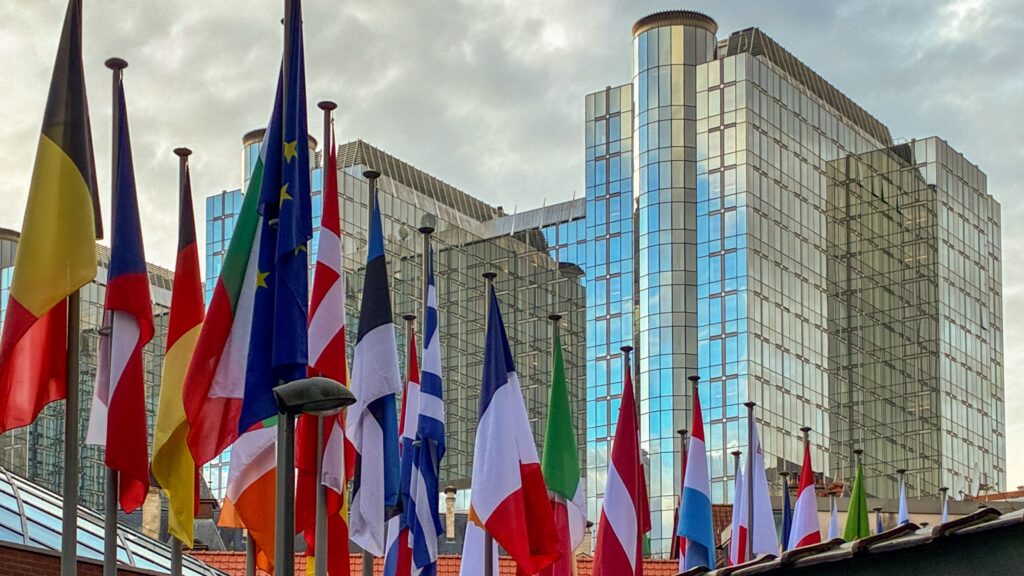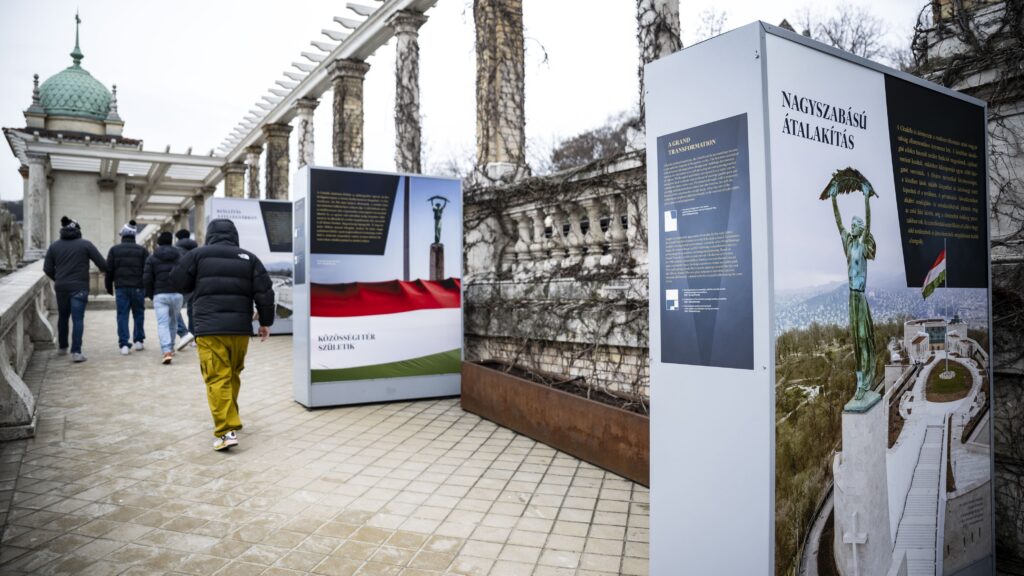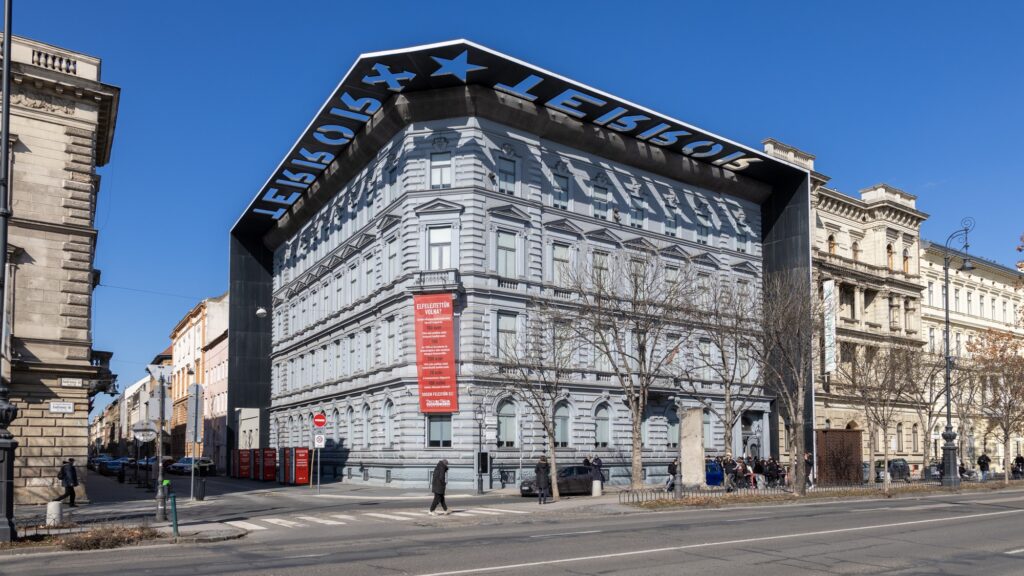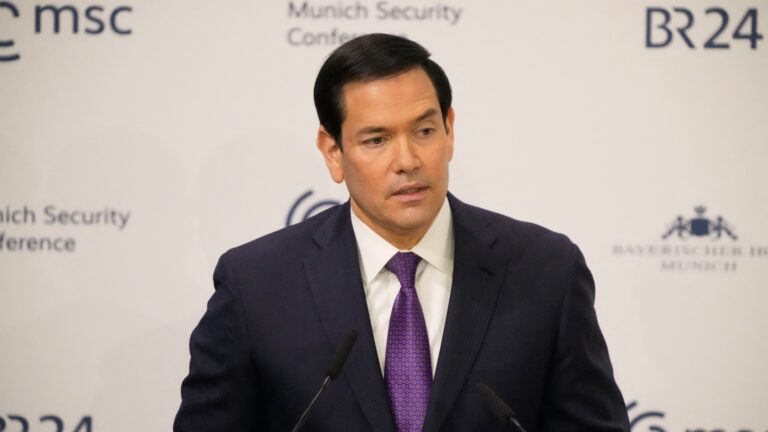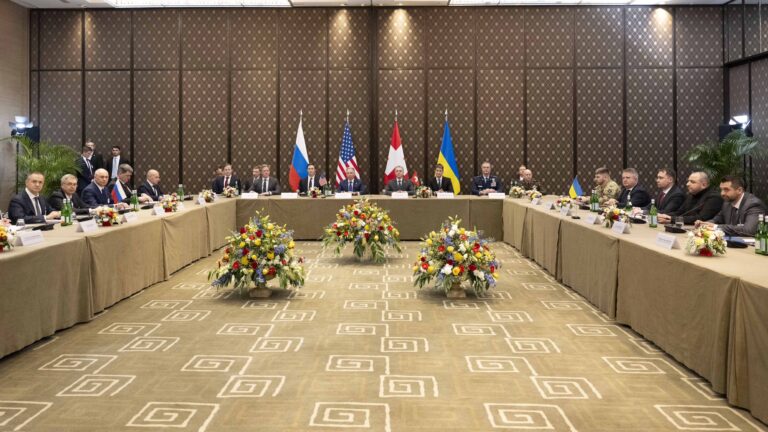The following is a translation of an opinion piece written by journalist and TV presenter Zsófia Jobbágyi, originally published in Magyar Nemzet.
It has been less than a month since the Constitutional Court upheld the judicial decision according to which the Hungarian newspaper Népszava insulted the Christian community with its caricature mocking Jesus Christ and his crucifixion. The infamous caricature shows the crucified Jesus, with Cecília Müller, Chief Medical Officer of Hungary, standing in front of him and saying: ‘His underlying condition caused dependence’. The cartoonist, Gábor Pápai did not apologise, saying that he only ‘meant it as a joke’, and he even complained that his accusers did not ask him what the real message of his drawing was.
I quoted Pápai’s reaction to the decision only because it beautifully demonstrates what the problem is with all this liberal nonsense like ‘nobody can be discriminated against because of their religion, political affiliation, or sexual orientation’: that it is simply not true. And those who are the most vocal about it are exactly the ones who are unable to put this otherwise noble social objective into practice. Those who do not fall within a framework of very narrow religious, ideological, and sexual orientations, drawn by the leftist liberals, are quite thoroughly excluded. (On a side note I would like to mention, as I really need to get it off my chest: nobody asked the cartoonists of Charlie Hebdo either what message they truly wanted to convey with their drawings depicting Muhammad.)
Any way I look at it, being a Christian today is not cool.
The Christian faith, going to church, and commemorating religious feasts have been conflated with musty conservatism in the mainstream, and the faith of those who are church members is portrayed as insincere, and just for show. Anyone who as a public figures professes their Christian faith get regularly put in the pillory and have to suffer severe reproach for their faith, the authenticity of which are also called into doubt. And they have to endure this. Just like we, Christians have to endure that a daily newspaper makes fun of Christ’s crucifixion, and the author is even upset that no one asked him for an explanation.
We are also expected to tolerate, without a single complaint, that people marching at Pride parades dressed as nuns and priests defame our religion. However, at the same time, we have to welcome the fact that such a diverse sexual minority is having a parade in the streets. We have to put up with all Catholic priests, without exception, being called paedophiles from time to time, and we should be more than happy to give up historical Christian symbols across Europe so as not to offend the religious sensitivities of Muslim immigrants.
It would be difficult to say where this process exactly started; it can be linked to many things. However, what is certain is that the West has begun to methodically reject basic cultural principles such as solidarity, respect for families and marriage, and community values. In an earlier interview, State Secretary Tristan Azbej spoke about how ‘it has become an intellectual artform to mock anything Christian, including values and sacred symbols’.
Although the persecution of people has not yet begun, the persecution of symbols certainly has: just think of the nativity scenes banned from public spaces, the statue of Pope John Paul II in France that was removed because of the cross on it, regulations that prohibit the use of religious symbols in workplaces, and installations instead of Christmas trees…And the list goes on.
All this is a very conscious destruction and humiliation of the Christian faith, which once provided the social and cultural foundations of Europe.
Then, on the last day of the past year, the tragic news arrived that Pope Benedict XVI gave his soul back to the Creator. Not long after, a seriously insulting analysis by the British weekly newspaper The Economist was published, which said, among other things, that Pope Benedict’s death was a ‘relief’, and also, it would actually be time for Pope Francis to resign.
The well-known business paper added that ‘Pope Francis has had to lead the world’s Catholics in the knowledge that his predecessor, with radically different ideas, was living a few hundred yards away, in the Vatican gardens’. As if all that was not enough, they also questioned the reason for Benedict’s resignation, as according to them, since he had cited a decline in his health as the reason for quitting in 2013, he should have died shortly after it. The writing ends with a rather harsh statement that is perfectly illustrates what we have said above: ‘Benedict is dead. But it is far too early to write off the brand of Catholicism he embodied.’
The mere fact that such an article could be published and has no consequences means that the conscious undermining of the Christian religion, which has been going on in the public discourse for many decades now, has reached its goal. Nothing is sacred anymore.
At this point, I would like to cite a survey by Tárki (Hungary’s International Social Survey Programme) published a few weeks ago, which assessed if people would accept it if their neighbours belonged to a sexual minority or were Muslims. Commenting on the findings, with mouth agape, an editor of the news website Telex wrote uncomprehendingly that the proportion of those who would not want to live next door to Christians jumped from two to twelve per cent, too. I do not know why the portal is so puzzled about this fact when it is obviously the ‘result’ of an absolutely conscious process taking place in the media as well, which is also clearly evidenced by, for example, the infamous caricature in Népszava.
And so that no one has any doubt that this phenomenon is, unfortunately, worldwide, here are a few shocking statistics. The modern-day persecution of Christians—I think we can confidently call it persecution—is the most untalked about human rights crisis. According to a report published last November by Aid to the Church in Need, a British organisation, the oppression or persecution of Christians has increased in 75 per cent of the world’s nations in the past two years. According to the same document, the situation of Christians in the Middle East is also a cause for concern, as there is a risk in many countries that several Christian communities may disappear as a result of mass migration. According to the report, since the establishment of the State of Israel in 1948, the number of Christians living in the Palestinian territories has fallen from 18 per cent to less than one per cent due to the ongoing Jewish–Palestinian tensions and economic hardships. Over the past two years, more than five thousand Christians have left these areas, including Jerusalem—they have joined tens of thousands of their fellow Christians who had already left this region, fleeing predominantly to Europe, the United States, and Canada.
I do not know where this process will stop and what its exact goal is—is it the complete elimination of Christian culture, or the total eradication of Christian–conservative values in the name of equality and acceptance? If I have to accept and respect everyone, why should I, as a Catholic, be the object of mockery without any consequences? Of course, I do not expect an adequate response to any of my questions from anyone, but my potential answers paint a rather grim vision for people like me.
However, even in the blackest darkness, there are always some glimmers of light.
Immediately after reading the insulting article about the deceased Pope Benedict, I came across another piece of news: the Ukrainian Ministry of Defence shared a video showing a group of soldiers singing Christmas carols in a destroyed church in Kharkiv, Ukraine. The barely minute-long video was enough to show how much damage was caused to the building during the attacks, and that the bombings did not spare the statue of the Virgin Mary either. While the song was being sung, some footage from 2018 and 2019 showing peaceful Christmas moments was edited in as well, which further enhanced the powerful message of the video.
And that was the moment I realised that whatever the global goal is, the power of Christianity lies precisely in the fact that it cannot be simply erased. Our churches can be destroyed, our symbols can be removed, our faith can be questioned, and our religious feasts can be mocked… but God can never be removed from the heart of real Christians!
Click here to read the original article

